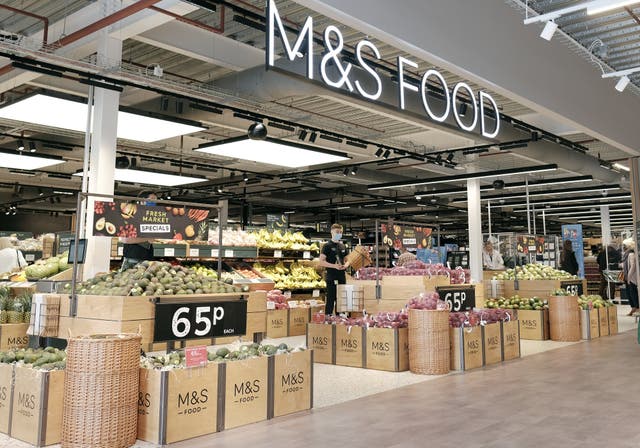Marks and Spencer boss: Brexit forced us to withdraw 600 lines from Irish stores
Sacha Berendji also told a House of Lords committee that M&S had faced increased costs and wastage due to new rules and administration.

Marks and Spencer has had to withdraw about 600 lines of goods from its stores in the Republic of Ireland since Brexit, peers have been told.
Sacha Berendji, the retailer’s Ireland and Northern Ireland director, also said that it had faced increased costs and wastage due to new rules and administration.
He was giving evidence to the House of Lords Protocol on Ireland/Northern Ireland sub committee on Wednesday.
He told peers that the impact on their operations in Northern Ireland, where a number of grace periods to rules within the Northern Ireland Protocol apply, had been significantly less than in the Republic.
“While our business is significant in Ireland, it isn’t big enough to stand up its own supply chain in Ireland so the vast majority of our goods continue to to be shipped from GB over to Northern Ireland and the Republic of Ireland.
“In order to facilitate this we had to create a new export centre in Motherwell. All of our product for export to Northern Ireland and the Republic is now shipped into Motherwell; previously it was in our regular depots.
“At Motherwell, those vehicles are separated and despatched to Northern Ireland and the Republic.

“Previously goods would have come into our depot on the evening before and be shipped out ready for sail the following morning.
“The process now requires an extra 24 hours in our export centre which means that we have taken one night’s life out of all the product we ship which clearly has had an impact on shelf life for our customers.”
Mr Berendji added: “We have also seen an availability impact, less so in Northern Ireland but still there. But in our Republic of Ireland stores there are about 600 lines out of around 7,000 that we are not able to export, which we need to find a different solution for.
“Therefore, the net impact for our customer has been that we have seen worse availability in both countries, although markedly worse in the Republic of Ireland, and higher waste levels for us.
“On top of that, the cost of setting up the operation has cost us around £30 million of additional costs for the island of Ireland.”
He continued: “It takes up to 20 people an hour to despatch every vehicle to with the correct documentation to Northern Ireland. That number is eight hours for the Republic of Ireland.
“Every single item on our load to Republic of Ireland needs to be certificated every single day.
“We have looked at other options and we have built and recruited a local sourcing team for the island of Ireland and there are around 450 products we are now sourcing locally, including short shelf-life products like sandwiches.”
Baroness Goudie asked about the practical impact that changes had had on customers.
Mr Berendji said: “We are in a steady situation in Northern Ireland where broadly speaking we are able to deliver most of what we would like to for our customers, albeit with the shelf-life impact.
“There are some key areas we are not able to do. Our Christmas food to order, which we weren’t able to do for either Northern Ireland or the Republic of Ireland last year because of the complexity of shipping product.
“The risk of getting a vehicle turned around and not giving people Christmas dinner was just too great.”





